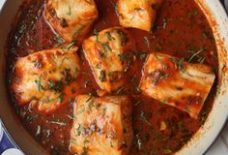Bridge Between Worlds: A Lebanese Arab American Woman’s Journey
By: Hala Lababidi Buck/Arab America Contributing Writer
In these COVID-19 times, Arab Americans, or for that matter any hyphenated American, is probably concerned about family and friends here in the U.S. and those back in their country of origin.
Now, more than ever, we may be aware of what I call our “in-betweenness” which this virus has magnified — the reality of not feeling 100% here nor 100% “there” — wherever that may be. Because of the pandemic, we can’t hop on a plane and visit friends and relatives scattered around the world. The best we can do is bless WhatsApp and other virtual platforms that keep us connected on a screen.
Those of us with hyphenated identities are like human bridges straddling cultures, religions, and ethnicities. I was born in Lebanon to a Sunni Muslim father and a Maronite Christian mother. My book Bridge Between Worlds: A Lebanese-Arab-American Woman’s Journey depicts my journey as a “human bridge”–the metaphor I discovered through the hundreds of bridge paintings I painted when my husband—a U.S. Foreign Service officer– and I were posted to Ottawa, Canada. In sharing my story, my hyphenated identity suddenly took on a new meaning as those hyphens themselves became bridges of sorts.
If you are an immigrant or a child of immigrants, whether first, second or third generation or an international adoptee, or a highly mobile, cross-cultural Arab-American, you may relate to my journey and perhaps, find your own story as a result.
In Arab tradition, we have hakawatis (storytellers). Usually, it was
a grandmother, teta or sittee or a grandfather, jiddee or in the old days a professional storyteller who went from village to village, town to town. That lost art of storytelling that is found in many communitarian cultures is important because it gave us a sense of connectedness, of community. And it teaches the young about their family history, which as a therapist, I found is a crucial part of their story and helps them make sense of their own life. That was the impetus to write my book, as a legacy for our daughter Leila. These times of sheltering-in-place provides an ideal opportunity to share our family stories with our children and grandchildren. The technology available makes it easy. Arab America provides us all a virtual hakawati platform for which I am grateful.
In times where “otherness” creates cultural anxiety that leads to discrimination, harassment, and injustice, we can become a hakawati and provide a different narrative to those who see us only through a fearful and distorted lens. It’s important for us to tell our stories to counter others, “instant experts”, who writes about “us” and package it and sell it to fit their agenda. Especially since 9/11 and now when our ethnicity and religions are disparaged and vilified, we can “show up.” We can write our own stories, our memories of childhoods and countries, and provide a picture of our cultural heritage that can counterbalance what now only appears on our screens when something bad, usually war and violence, happens “over there.”
Since my book has been out, I have received feedback that validates my hope that it will bring a new understanding of our people and history. One response from a Jewish elder was especially encouraging “…I love the way she focuses on the human side of each culture and shows how our politics get in the way of seeing the people who live in each country. She very much shows the human and admirable qualities, which do exist, of people. I know that is a problem in how I have tended to see things. It is not usual for us to see the people in Arabic countries as full human beings.” He added how my story brings out our “shared humanness” and how he learned so much about our history.
Even if it’s something we intend only to gift our children and grandchildren, I encourage you to start writing down your story. For our first, second, or even third-generation children, they need to know their roots. I found that out with our daughter, who had missed out on that during Lebanon’s civil war. I can also tell you that for me, sharing my story became a healing journey.
Over the 14 years, it took me to write my book, I did not realize how putting my story on paper helped me make peace with the fact that I was not fitting 100% anywhere and appreciate its challenges and gifts. In writing, my story, I found peace in the fact that I will always belong to two cultures and two religions.
Hala Buck grew up in Lebanon and is a licensed clinical professional counselor and board-certified counselor. She has authored articles about cross-cultural therapy and gives workshops nationally and internationally, integrating Adlerian psychology, art therapy, and the body. Her book may be ordered from Amazon, Bridge Between Worlds: A Lebanese Arab American Woman’s Journey
Check out Arab America’s Blog here!



